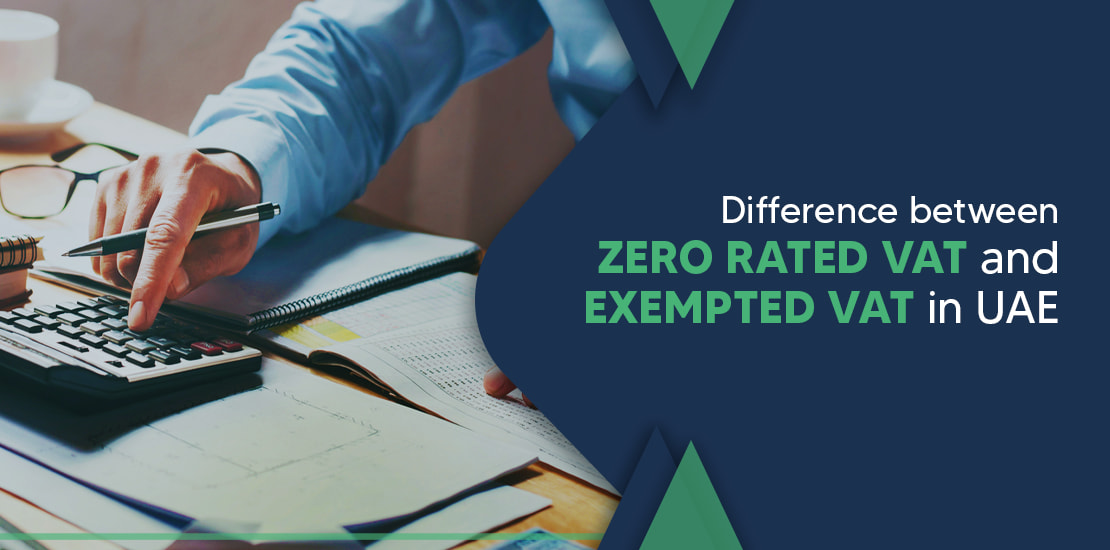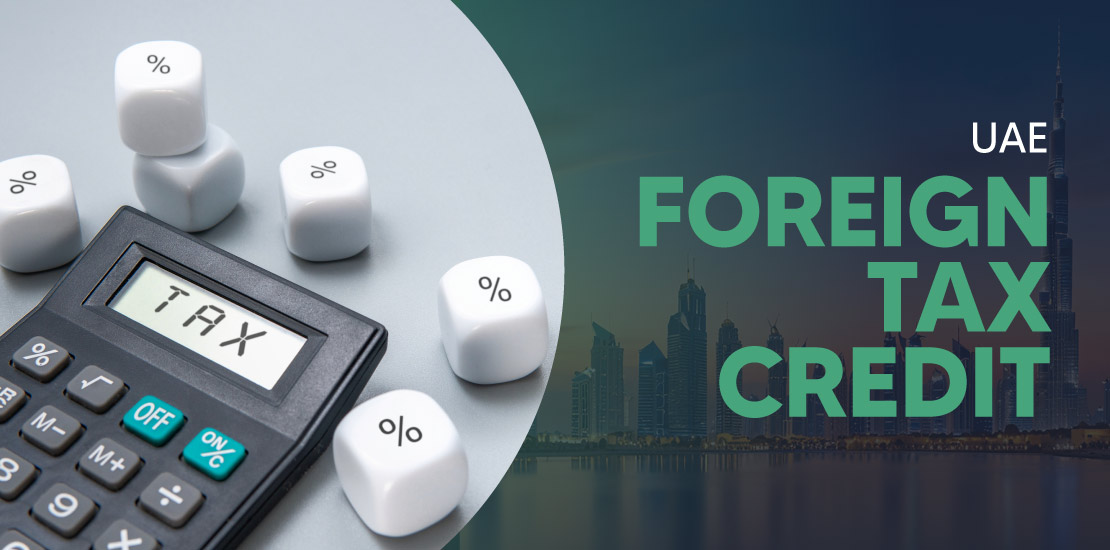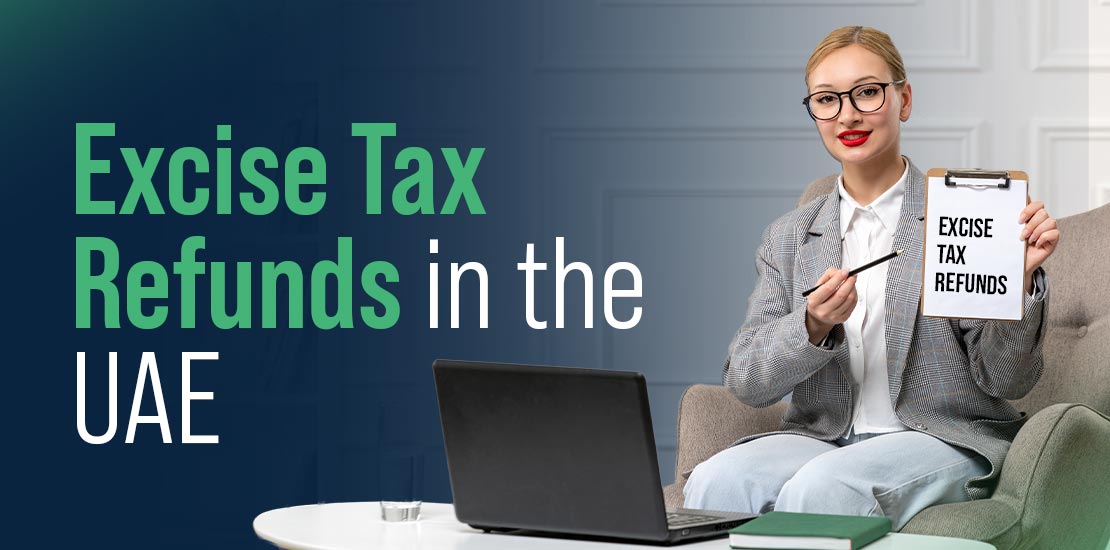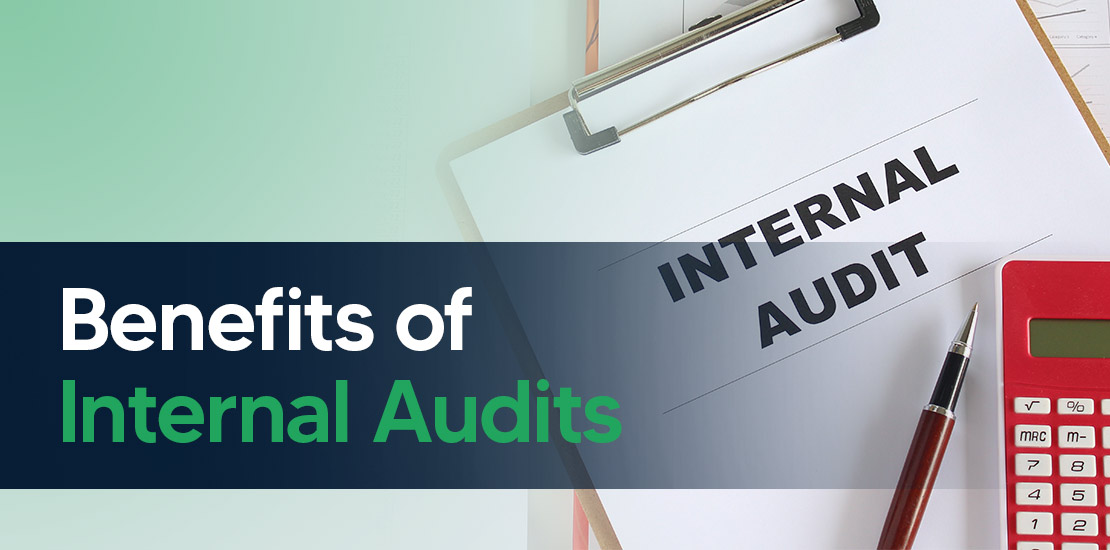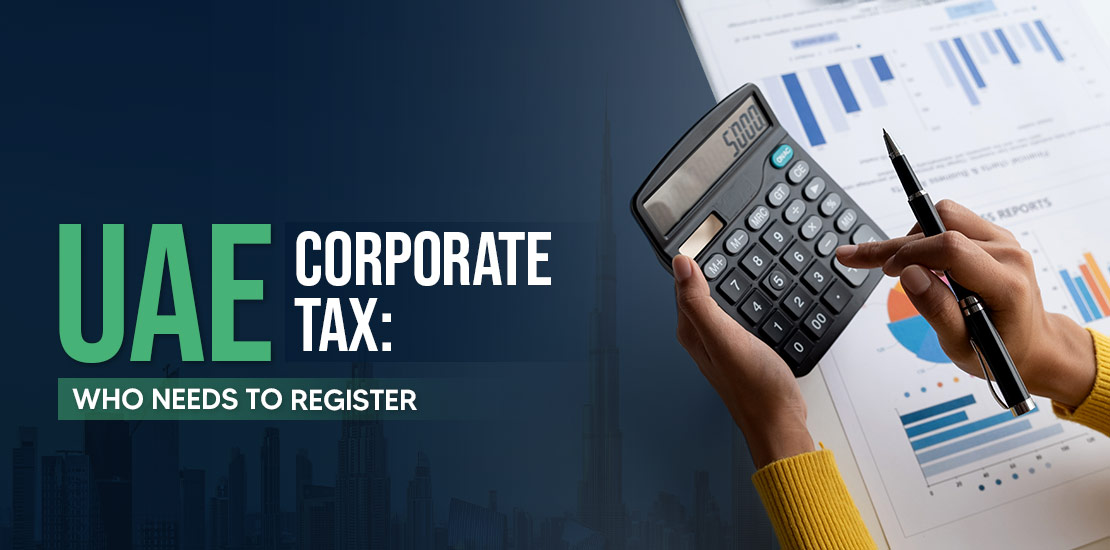The UAE’s Value Added Tax (VAT) system has become an essential part of everyday business. While most are familiar with the standard 5% VAT rate, things can get trickier when dealing with zero-rated and exempt supplies. Many businesses find themselves confused about the difference between these two categories which may lead to potential errors in VAT filing and record keeping.
Therefore, understanding the difference between zero rated VAT and exempted VAT in UAE is crucial for businesses to ensure compliance with tax regulations and avoid any potential penalties.
What is VAT?
VAT, or Value Added Tax, is a type of consumption tax levied on the value added to goods and services at each stage of production and distribution. The tax is applied to the increase in value at each stage, not the total cost. Think of it like a tax on the work done at each step.
The United Arab Emirates implemented VAT in January 2018. Here’s a basic overview:
- General Rate: 5% on most goods and services.
- Exceptions: Some essential goods and services are exempt or have a 0% rate (e.g., healthcare, education).
- Registration: Businesses exceeding a threshold (currently AED 375,000) must register for VAT.
- Input Tax Credit: Registered businesses can reclaim VAT they paid on their purchases.
Zero Rated VAT in UAE
Zero-rated VAT is a category within the UAE’s VAT system where a 0% VAT rate applies to specific goods and services. While these supplies are still considered taxable, the VAT amount is zero. A crucial benefit of zero-rated supplies is the ability to recover input tax (VAT paid on business expenses) incurred for these supplies. This helps businesses maintain cash flow.
Examples of Zero-Rated VAT in the UAE
Here are some of the main categories of zero-rated goods and services in the UAE:
- Exports of goods and services outside the GCC (Gulf Cooperation Council).
- International transportation and related supplies (e.g., fuel for international flights).
- Supplies of certain means of transportation (new ships, aircraft for international use).
- Precious metals like gold, silver, and platinum supplied for investment.
- Newly built residential properties for the first 3 years of their existence.
- Certain educational and healthcare services, along with related goods and services.
How Businesses Handle Zero-Rated VAT
Businesses making zero-rated supplies need to clearly identify them on invoices with a “Zero-Rated Sales (0.00%)” label. They must record these transactions in their VAT accounts and report them in VAT return filings.
Importantly, they can claim input tax credit for VAT paid on expenses related to zero-rated supplies.
Exempted VAT in the UAE
Exempt VAT in the UAE means no VAT is charged at all on specific goods and services. Unlike zero-rated supplies, these transactions are completely outside the scope of VAT. Businesses supplying exempt goods and services don’t add VAT to their prices and don’t collect it from customers.
A key difference from zero-rated supplies is that businesses cannot claim input tax credit (VAT paid on related expenses) for exempt supplies. This VAT becomes a cost of doing business.
Businesses dealing primarily with exempt supplies may not be required to register for VAT if their total taxable supplies (excluding exempt ones) fall below the registration threshold (currently AED 375,000 annually).
Examples of Exempt Supplies in the UAE
- The sale or lease of residential properties (excluding commercial spaces within them)
- Local passenger transport services (buses, taxis, metros, and ferries)
- Bare land, a land without any buildings or structures on it
- Certain financial services (such as issuance of securities or life insurance contracts)
Exempt supplies can simplify record-keeping for businesses as they don’t need to calculate or collect VAT. However, the inability to recover input tax might increase overall business costs.
Key Differences Between Zero Rated VAT and Exempted VAT in UAE
The main difference between Zero-Rated VAT and Exempt VAT in the UAE is how they affect businesses. Here’s a breakdown of what that means:
| Feature | Zero-Rated VAT | Exempt VAT |
| VAT Charged | 0% VAT rate, but still considered taxable | No VAT charged at all |
| Business Registration | Required if exceeding the VAT registration threshold | May not be required if primarily dealing with exempt supplies |
| Input Tax Recovery | Allowed for VAT paid on expenses related to zero-rated supplies | Not Allowed – VAT on expenses becomes a cost |
| Record Keeping | Need to identify and report zero-rated transactions | No need to calculate or collect VAT |
| Impact on Businesses | Can improve cash flow by recovering input tax (but requires record-keeping) | May increase costs due to non-recoverable input tax (but simpler record-keeping) |
| Impact on Consumers | May lead to lower prices for zero-rated goods/services (especially exports) | Generally, lowers prices for exempt goods/services (like housing and transport) |
Partial VAT Exemption in UAE
A business might offer a bundle that includes both taxable and exempt supplies (e.g., a training course with a textbook). In such cases, the business needs to separate the taxable and exempt portions of the supply and apply VAT accordingly. They would charge VAT on the taxable portion (training course) and not on the exempt portion (textbook).
Businesses that make both taxable and exempt supplies often incur mixed expenses that benefit both types of supplies. The UAE VAT law allows for approved methods to apportion the input tax (VAT paid on these mixed expenses) between the taxable and exempt supplies.
Partner with Shuraa Tax for Your UAE VAT Needs
Knowing the difference between Zero Rated VAT and Exempted VAT is very important for business owners in the UAE. It helps you manage your tax reporting, stay compliant with regulations, and plan your finances better. By understanding these two types of VAT, you can make sure your business runs smoothly and avoids any tax-related issues.
For expert help with your taxes in the UAE, you can always turn to Shuraa. Our team at Shuraa Tax is ready to assist you with all your tax and accounting needs. Our tax consultants in Dubai will review your financial situation and help you plan your taxes and bookkeeping.
Shuraa Tax offers the best VAT consultancy services in Dubai, including filing VAT returns, giving VAT advice, and assisting with all aspects of UAE VAT implementation. With Shuraa Tax, you can confidently handle your VAT matters and focus on growing your business.
Frequently Asked Question
1. What is the difference between zero-rated VAT and exempt VAT in UAE?
Zero-rated VAT means a 0% VAT rate applies, but businesses can still claim input tax credit for VAT paid on expenses related to those supplies. Exempt VAT means no VAT is charged at all. However, businesses cannot recover input tax on expenses related to exempt supplies.
2. What is a non-recoverable input tax?
Non-recoverable input tax is the VAT portion of expenses that a business cannot claim back. This applies to VAT paid on expenses related to exempt supplies and some personal expenses not related to business activities.
3. Do businesses have to register for VAT in the UAE if they only deal with zero-rated supplies?
Yes, businesses making zero-rated supplies still need to register for VAT in the UAE. This is because they need to file VAT returns even though the VAT rate is 0%.
4. What are the record-keeping requirements for zero-rated and exempt supplies?
Businesses need to maintain separate records for both zero-rated and exempt supplies to ensure accurate reporting and potential input tax recovery for zero-rated supplies.
5. Are there any penalties for incorrectly classifying a supply as zero-rated when it should be exempt (or vice versa)?
Yes, incorrectly classifying a supply can led to penalties from the Federal Tax Authority (FTA). These penalties can include additional tax dues, interest charges, and administrative fines.



